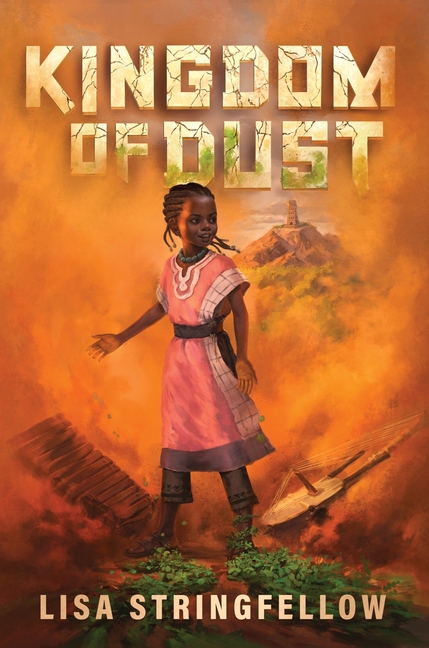From Teaching to Writing

TeachingBooks asks each author or illustrator to reflect on their journey from teaching to writing. Enjoy the following from Lisa Stringfellow.
Preserving Memories Through Poetry
by Lisa Stringfellow
Our lives are a collection of moments. Memories shape our past and guide our decisions in the future.
As a middle school English teacher, I enjoy sharing books with my students that explore the importance of memories and the past, and I try to help students connect those themes to their own lives. The Giver (HMH, 1993) by Lois Lowry, Eventown (HarperCollins, 2019) by Corey Ann Haydu, and The Parker Inheritance (Scholastic, 2018) by Varian Johnson are all books I have used in this work.
One of my favorite activities when teaching is to have students write a memory poem.
I start with a brainstorming session. Setting a timer for three to five minutes, I ask students to generate a list of as many memories as they can. These can be first memories, favorite memories, sad memories, funny memories, or anything they want. Once that time is up, I reset the timer and ask students to list to the side the emotions they associate with each memory.
Here’s an example of what I wrote for one of my memories:

When the brainstorming is done, I ask students to focus on one memory from their list. In After the End: Teaching and Learning Creative Revision, educator Barry Lane offers strategies about elaborating through “snapshots” and “thoughtshots.” I ask students to imagine the memory as a photograph, but one that they can step into. Not only should they describe what they see, but use all of their senses to bring us into the memory. Answer these questions about what we can’t see in the picture: Who was there? What was happening? How did you feel?
The next step is for students to write a poem about that memory. Over the years, my students have shared beautiful pieces, full of joy, heartbreak, and all of the emotions in between.
Memory and preserving history has been an important theme of my own work as an author. In A Comb of Wishes (HarperCollins, 2022), oral storytelling is a vital part of the culture of St. Rita, the fictional Caribbean Island where the story is set. At first, my main character Kela resents the work that keeps her mother so busy collecting local oral histories, but she comes to understand the power and strength that comes from those stories.
Likewise, my middle grade novel Kingdom of Dust (HarperCollins, 2024) explores the question of what is lost when we forget the past.
I chose to begin the novel with the following West African proverb: “When a griot dies, it is as if a library has burned to the ground.” Author Alex Haley included the same proverb in the acknowledgements for his novel Roots: The Saga of an American Family, an exploration of his own family history, tied inextricably to that of our nation.
In Kingdom of Dust, twelve-year-old Amara struggles to survive in the drought-stricken land of Kun. Her foster mother tells her that the kingdom was once a lush and beautiful place but her memories have faded since the griots, Kun’s memory keepers, vanished years before. Amara finds herself on a journey to find the griots and bring back Kun’s memories, and in doing so, she comes to understand her own place in the world.
Although the griots in Kingdom of Dust are magicians, they are based on real griots that still preserve and share the memories of people throughout the African diaspora. Griots are musicians, poets, historians, and storytellers.
Kingdom of Dust begins and ends with a praise song, a traditional form of performance for griots. The last lines of the epilogue are my wish for my students and us all.
“Let the people remember
Let the people never forget”
Books and Resources

TeachingBooks personalizes connections to books and authors. Enjoy the following on Lisa Stringfellow and the books she’s created.
Listen to Lisa Stringfellow talking with TeachingBooks about the backstory for Kingdom of Dust. You can click the player below or experience the recording on TeachingBooks, where you can read along as you listen, and also translate the text to another language.
- Listen to Lisa Stringfellow’s name pronunciation
- Enjoy this interview with Lisa Stringfellow about Kingdom of Dust
- Discover Lisa Stringfellow’s page and books on TeachingBooks
- Visit Lisa Stringfellow on her website, X (Twitter), Instagram, GoodReads, and LinkedIn page
Explore all of the For Teachers, By Teachers blog posts.
Special thanks to Lisa Stringfellow and HarperCollins for their support of this post. All text and images are courtesy of Lisa Stringfellow and HarperCollins and may not be used without expressed written consent.



Leave a Reply